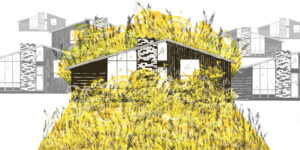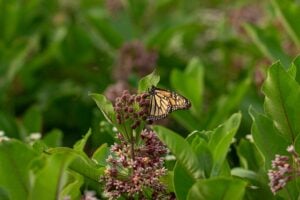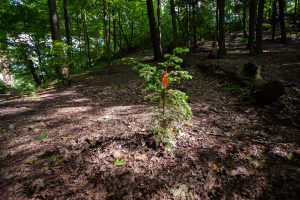
Environment
Our shared garden: The importance of native plants
As cities and towns continue to expand into our wild landscapes, conservation gardens can provide refuge for Canada’s plummeting biodiversity
- 3462 words
- 14 minutes
This article is over 5 years old and may contain outdated information.
Environment

The city of Chilliwack, B.C. is taking a new approach to solving an old problem.
As part of a recent pilot project to control the spread of invasive Japanese knotweed, the city has brought in goats.
And not just any old goats. Conrad Lindblom, owner of Rocky Ridge Vegetation Control in Kamloops, trains the goats to graze on specific weeds, ensuring they leave native plants untouched. Lindblom says the use of goats to control weeds is environmentally friendly and just as effective — if not more effective — than using herbicides.
“This is the first time this particular herd of goats has been trained to eat Japanese knotweed, but they’ve been doing really well,” he said. “We feel we can get the weeds under control in about three years, whereas with pesticides it would take about six years.”
Lindblom says goats are perfect for the job because they completely digest seeds, meaning the knotweed won’t be spread through their feces.
The pilot project is a collaborative effort that includes the city, the Fraser Valley Invasive Plants Council, and the University of Fraser Valley Agriculture Centre of Excellence.
While it has yet to be determined whether or not the goats will be in Chilliwack for the long haul, Chilliwack Mayor Sharon Gaetz said she hopes the pilot project yields successful results.
“Goats are one tool that we’re looking at to … control invasive species,” she added.
Using goats for pest control is becoming increasingly common in the U.S. and Europe, but not so much in Canada. Lindblom hopes to change that.
“I’m helping two other companies start up this year and we are trying to work with universities to get [this type of weed control] into their agriculture programs,” he said.
“Everyone knows herbicides aren’t good and this is the best alternative.”
Are you passionate about Canadian geography?
You can support Canadian Geographic in 3 ways:

Environment
As cities and towns continue to expand into our wild landscapes, conservation gardens can provide refuge for Canada’s plummeting biodiversity

Environment
As cities and towns continue to expand into our wild landscapes, conservation gardens can provide refuge for Canada’s plummeting biodiversity

Environment
David Boyd, a Canadian environmental lawyer and UN Special Rapporteur on Human Rights and the Environment, reveals how recognizing the human right to a healthy environment can spur positive action for the planet

Environment
Changes to the city’s Green Standard aimed at protecting its fragile ravine network will pose challenges and opportunities for landscapers — and could kick off a national trend